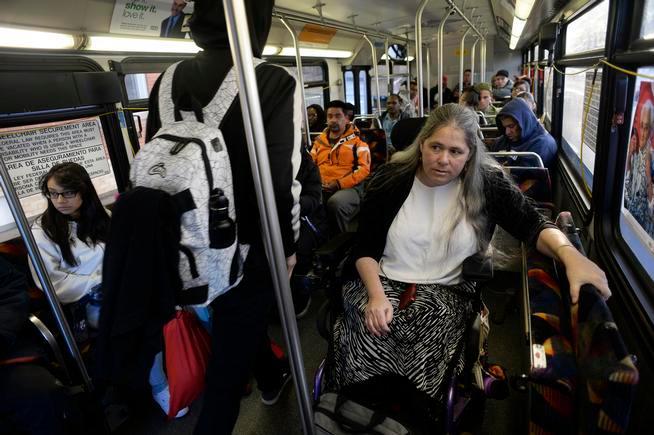When the Greyhound bus rolled up to Glenwood Springs and the wheelchair lift didn’t work, Julie Reiskin was pretty much stuck.
She was in the middle of a business trip and needed to make the about 90-minute trip to Grand Junction that night. But when the wheelchair lift failed and she couldn’t board the bus because she uses a motorized wheelchair, Greyhound wanted her to wait nine hours for their next bus, which wouldn’t arrive in Glenwood Springs until 3 a.m.
Now Reiskin and the Colorado Cross-Disability Coalition, where she serves as executive director, are suing Greyhound over the 2018 incident, which left Reiskin with a $396 taxi bill. The lawsuit alleges that the bus company violated the Americans with Disabilities Act and the Colorado Anti-Discrimination Act by failing to properly maintain the bus’ wheelchair lift.
“We have to enforce these laws,” Reiskin said Tuesday. “These laws have been around for 30 years now. We should be able to buy a ticket and pay our fare and get on the bus just like anyone else.”
Crystal Booker, a spokeswoman for Greyhound, declined to comment on the lawsuit Wednesday, but a letter Greyhound sent to Reiskin that was included in the court filings says the company took reasonable measures to ensure the wheelchair lift was working and the company offered to reroute a training bus to pick up Reiskin with only about an hour delay, rather than requiring her to wait for the 3 a.m. bus.
Reiskin said that the company didn’t make that offer until after she’d already called for a taxi, and she declined the training bus option because the accessible taxi was on the way and because she was worried that the training bus’ wheelchair lift might be broken as well.
Greyhound has a long history of violating federal and state anti-discrimination laws, Reiskin claimed in the lawsuit. She is seeking to be reimbursed for the taxi ride — which she said the company promised to do but later refused — and wants to force the company to better maintain its wheelchair lifts and training.
Greyhound buses are often the only way for people who use wheelchairs to travel across Colorado, particularly in rural areas and mountain regions, Reiskin said. On Tuesday, she was back in Grand Junction for her first trip in a few months, she said.
“I actually spent three times as much to take Amtrak, because I was afraid of something happening with Greyhound,” she said. “But that’s not always an option.”
This content was originally published here.

